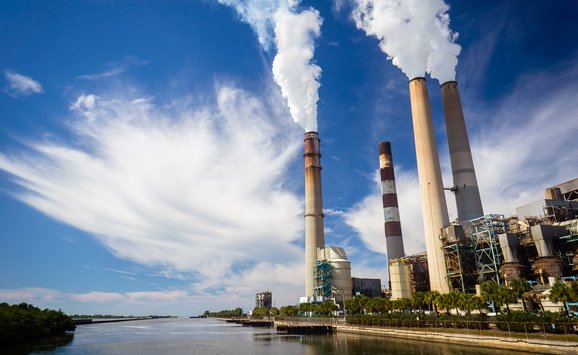In December, RFF hosted a presentation by Thomas C. Schelling, the 2005 Nobel Prize Laureate in Economics and a distinguished professor at the School of Public Policy, University of Maryland, at the Fourth Annual Hans Landsberg Memorial Lecture. Schelling was a colleague of Landsberg, who was a beloved member of the RFF research staff for for many years.

Urging the audience to "be patient and not despair" when it comes to global warming, Schelling reminded the audience that relatively speaking, climate change is a new subject. "We're still trying to learn how to think about—especially to think collectively about, internationally—how to deal with global warming and the impending climate change and some of its consequences," he said.
The science behind the expectation of human-induced global warming is pretty well beyond dispute, Schelling said. "What there are, are many, many uncertainties: not so much uncertainty about whether global warming as a phenomenon is real, but uncertainties about how much warming there will be as a result of greenhouse gases; how that warming may change climates around the world; and how those shifting climates may affect human life, welfare, productivity, nature."
One important and immediate concern about global warming is that many tropical diseases, like malaria are likely to advance as tropical areas grow warmer and extend father.
Currently, malaria kills at least a million people a year, most of them children, Schelling said. "We have to think about the way that the world is going to look when climate change becomes very serious, likely in the second half of this century."
According to Schelling, a telling example of the interconnections between climate change and public health are the differences between Singapore and Malaysia, two countries separated by one kilometer of seawater. When Singapore separated from Malaysia about 40 years ago, they were identical in their development, and Singapore was essentially a mosquito swamp.
Singapore has now developed to where it probably has the highest standard of living in the world, not in terms of gross national product (GNP), but in the absence of poverty, the extent of home ownership, and the availability of health care, Schelling said. Malaria is essentially an imported disease in Singapore, brought back by travelers and quickly dealt with.
But the disease is widespread in Malaysia. If Malaysia can catch up to Singapore economically over the next decades, however, malaria can be brought substantially under control. A better health care infrastructure will mean that people can receive treat-ment and further transmission can be halted.
The real victims of climate change are going to be in the developing countries, where a third of the GNP may be agricultural and maybe half the population practices subsistence agriculture.
A second concern for Schelling is how global warming can affect economic productivity and stability. In developed countries, the impact will be slight. Hardly any market-oriented production in the United States, Japan, Western Europe, or Australia is dependent on the weather.
The main exceptions are agriculture, forestry, and fisheries. But in the United States, they account for less than 3 percent of our gross domestic product. The question is not whether we will lose production of food, Schelling said. "The issue is whether food production will become much more expensive, whether the water will be much more expensive to deliver, and whether techniques of cultivation may require new kinds of machinery and maybe more labor—and that's leaving aside the fact that in the United States, we still generate agricultural surpluses.
"What we must recognize is that the real victims of climate change are going to be in the developing countries, where a third of the gross national product may be agricultural and maybe half the population practices subsistence agriculture," Schelling said. Probably the best way for them to defend against the adverse effects of climate change is to develop as rapidly as they can, he said. The sooner Malaysia can become like Singapore, the sooner it can worry less about the impact of climate change on health, comfort, and productivity.
"This leads me to conclude that the right way to think about climate change is primarily a foreign aid program," Schelling said. "The people who will benefit will be seven-eighths of the global population toward the end of the century. They are the people who need protection against climate change that they are not yet prepared for."






